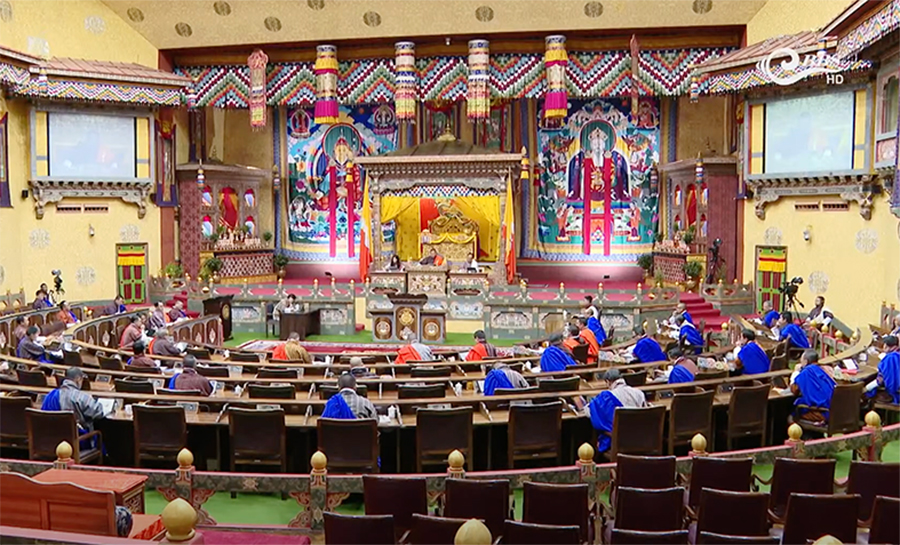
In the National Assembly yesterday, the Social and Cultural Committee revealed that the Royal University of Bhutan (RUB) colleges have the capacity to accommodate nearly 3,000 more students beyond the current intake. However, only 35 per cent of class 12 graduates, including self-financed candidates, secured admission to tertiary education this year. The education and skills development minister attributed the low intake to limited infrastructure and a focus on improving education quality.
Social and Cultural Committee’s Chairperson Lhaba Lhaba said that the removal of the class ten cut-off point has led to a significant rise in enrolment for classes eleven and twelve across the country.
The committee pointed out that RUB’s decision to admit only 20 per cent of students in colleges on government scholarship deprives most students of opportunities and exacerbates youth unemployment.
“65 per cent of students are left without opportunities, with no clear direction for their future. Many who miss out on government scholarships are forced to pursue education abroad, draining the country’s foreign reserves. With the capacity to enrol 2,971 more students, RUB’s decision to admit only 35 per cent is far from ideal.”
Some members expressed concerns about students unable to pursue further education due to policy changes and urged the government to address the issue and provide solutions.
Tshewang Rinzin, South Thimphu’s MP said “The discontinuation of arts and humanities courses in colleges has stranded many students from the 2022 and 2023 cohorts in their villages. While wealthier families can send their children abroad for further studies, those from poorer backgrounds are left with no options. These policy changes have significantly hindered access to higher education. I urge the ministry to address this issue and find viable solutions.”
Naiten Wangchuk, Monggar’s MP said “RUB claims that the low intake is aligned with the job market’s capacity. However, providing more students access to tertiary education could create employment opportunities, even beyond the domestic market.”
The committee’s chairperson also said that the education and skills development ministry, along with RUB, has prioritised science and technical subjects, which has significantly limited opportunities for students pursuing humanities and commerce studies.
In response, the education and skills development minister said that plans are in place to enrol 60 per cent of students completing the Gyalsung training through skilling programmes. She also said infrastructure in the Technical Training Institutes will also be upgraded.
The minister also added that the ministry in collaboration with the RUB and relevant stakeholders will work on the recommendations submitted by the committee.
The committee recommended that RUB increase its student intake based on the capacities of the colleges and expedite the establishment of the National Education Council.
Other recommendations are the need for regular coordination between the ministry and universities, revision of syllabus and programmes to accommodate arts and humanities, and commerce subjects, and introducing degree and master’s programmes for Technical and Vocational Education.
The House has asked the government to further review the recommendations and present a report in the summer session.
Sonam Yuden
Edited by Kipchu









